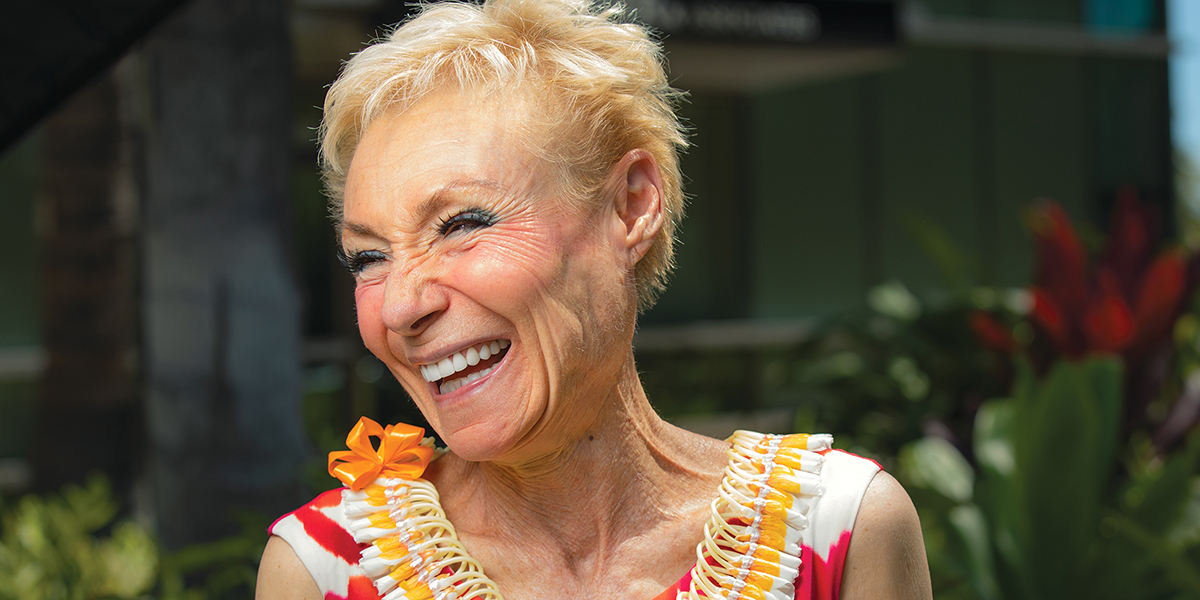“What makes you think you can go to medical school?” asked a neighbor when Bernyce Peplowski was a high-schooler in 1960s Pennsylvania. “People from this town rarely go to college, let alone medical school. And you’re a girl!”
“My mom was ready to deck him,” says Bernyce.
While others in her rural hometown near Pittsburgh underestimated her, Bernyce’s parents would not hear of small dreams or short-sighted expectations. She says, “What my mom, dad, grandma and dog couldn’t give me in material things, they gave me in life skills and determination.”
Her father gave her a hammer and nails when she was three, around the age when her mother took her to less expensive Sunday performances of the Pittsburgh Civic Light Orchestra. When she was 10, years after her father died, her mother taught her to write checks, pay bills and manage a household, in case anything happened to her.
“It’s easy to say the cards are stacked against you in a town like that, but with my family, they were stacked for me instead,” she says.
Equipped for success and coming home
Her years in medical school were a continued exercise against expectations. A doctor at her first medical school interview asked how her flight was. When she said she rode a bus overnight to get there, he wanted to know why.
Bernyce says, “I was so embarrassed I didn’t know what to say. Should I tell him I couldn’t afford a plane ticket and hotel room? I walked out of the interview thinking maybe this isn’t what I wanted to do.”
She found her place instead at the Philadelphia College of Osteopathic Medicine, where she earned her Doctor of Osteopathy degree while working to pay for it. “PCOM was a 180-degree turn from that first medical school,” she says. “I liked those people; I liked it there, and that’s how I feel about the University of Hawai‘i’s medical school, where post-baccalaureate programs like Imi Ho‘ola offer structure for students to succeed.”
When a residency in California prompted a relocation for Bernyce and her mother via cross-country rental van, Bernyce practiced medicine first and then served as a medical director for health insurance companies. Frequent work-related trips to Maui and Hawai‘i Island led to discovering her new home.
A commitment to healthy island living
On a side-trip to O‘ahu, she looked out the window as the plane flew over Ala Moana and said to her mother, “You know, that’s home down there. I just know that’s home.”
Hawai‘i has now been home for nearly 20 years, a special connection leading Bernyce to leave a gift in her estate to the University of Hawai‘i, most of which will go toward student loan repayment for future physicians at UH Mānoa’s John A. Burns School of Medicine. Recipients will be students from underserved areas of Hawai‘i who commit to practicing medicine in such areas in their island home.
“How many wonderful doctors don’t become doctors because they don’t have the support structure I had?” she asks. “How many of them feel as I did? I loved medical school, but often felt like I didn’t fit in. I couldn’t do things other medical students did because I had to work. Loans often take 20 years to pay off, but maybe we can reduce the stressors and have them paid off much sooner.”
A portion of Bernyce’s estate will also support outreach services at Kapi‘olani Community College’s Culinary Institute of the Pacific, specifically to engage and support food-insecure seniors with healthy, sustainably sourced meals.
In these post-career years, Bernyce offers consulting services for the American Medical Association and the Western Occupational Medical Association. “In the mornings, I get on calls pro bono to talk policy stuff and some clinical review, helping to review and establish policy,” she says.
The rest of her day is spent building a new home near Diamond Head. She says, “These islands are my home, and this is what drives me. I feel a connection with the people here. I know my body was born in Pittsburgh, but my soul was born in Hawai‘i.”
Questions? / More Information
If you would like to learn how you can support UH students and programs like this, please contact us at 808 376-7800 or send us a message.
